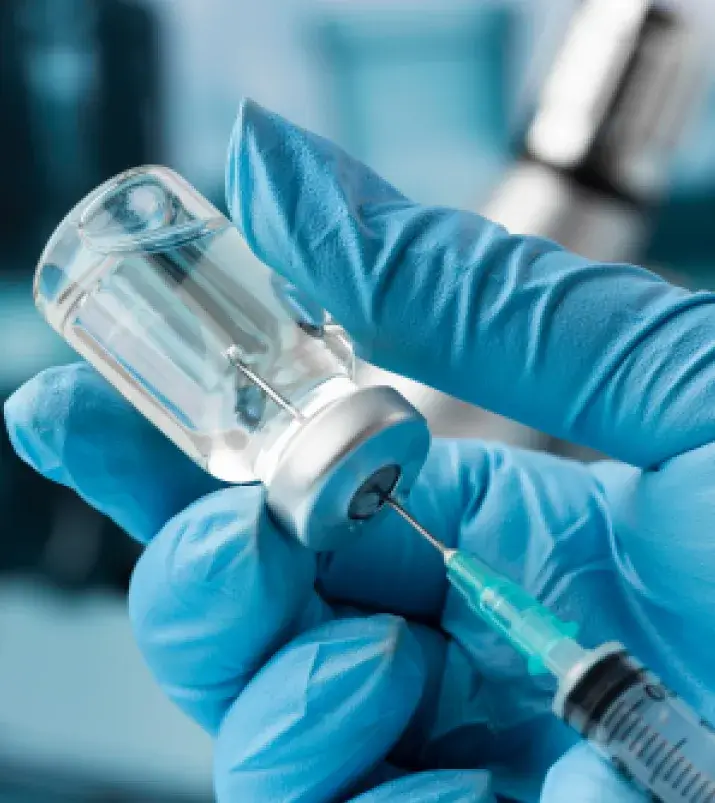
HPV, or Human Papillomavirus, is a group of more than 200 related viruses and is one of the most common sexually transmitted infections (STIs) worldwide. It’s so common that most sexually active people will contract HPV at some point in their lives, even if they have only a few sexual partners.

HPV is classified into two main categories based on the risk they pose to health:
These strains, such as HPV types 6 and 11, are generally not associated with cancer. Instead, they can cause conditions
like genital warts and other benign (non-cancerous) skin lesions. While uncomfortable or distressing, these conditions
are typically treatable and do not lead to more serious health issues.
Certain strains, like HPV types 16 and 18, are more dangerous because they can lead to the development of various
cancers. High-risk HPV strains are responsible for nearly all cases of cervical cancer and are also linked to cancers of
the anus, penis, throat (oropharyngeal cancer), vagina, and vulva. These cancers can develop years after an individual
is infected with high-risk HPV.
The HPV vaccine is a vital measure in preventing infections by specific types of Human Papillomavirus (HPV), which can lead to various cancers, particularly cervical cancer. In Singapore, the vaccine is included in the National Childhood Immunisation Schedule (NCIS) and is strongly recommended for females aged 9 to 26 years. The vaccine is most effective when given before any exposure to the virus, ideally before individuals become sexually active.
For Females and Males: While Cervarix is registered for use in females, Gardasil 9 is available for both females and males, providing protection against a broader range of HPV types. According to the US Food and Drug Administration (FDA), Gardasil 9 is approved for use in both females and males aged 9 to 45, offering protection for a wide age group. Vaccinating males is important as it protects them from HPV-related cancers, including cancers of the anus, penis, and throat, as well as genital warts.
Studies have shown that the protection provided by the HPV vaccines is long-lasting, with no current recommendations for booster doses. The vaccines are safe, with side effects generally being mild, such as pain at the injection site, headaches, and fever.
Even after vaccination, regular cervical cancer screenings remain essential. The vaccine does not protect against all HPV types that can cause cancer, so screenings like PAP Smear and HPV tests are crucial for early detection and treatment.
The HPV vaccine is one of the most effective tools available for preventing certain types of cancer before they start. By getting vaccinated and continuing with regular screenings, both females and males can significantly reduce their risk of developing HPV-related cancers, making the HPV vaccine a key part of public health efforts in Singapore.

Gardasil 9 is a highly recommended HPV vaccine that offers broad protection against nine different types of Human Papillomavirus (HPV). This vaccine is crucial in preventing various HPV-related cancers, including cervical, anal, vulvar, vaginal, penile, and throat cancers, as well as genital warts.
Gardasil 9 covers:
By choosing Gardasil 9, you’re opting for the most comprehensive protection available against HPV-related conditions.
Procedure: The Gardasil 9 vaccine is administered through an injection, typically in the upper arm. The procedure is quick, with minimal discomfort. Most people experience mild side effects like soreness at the injection site, mild fever, or headache.
Schedule:
Completing the full vaccination schedule is essential for maximum protection.
Even though cervical cancer can affect virtually any woman, there exists a few risk factors that may enhance your risk of developing cervical cancer, including having a compromised immune system, being sexually active at a relatively young age, having many sexual partners, smoking, and taking oral contraceptives for more than 5 years. The most common cervical cancer symptoms are bleeding after intercourse, vaginal bleeding as well as discharge.
Yes, the HPV vaccine is highly effective in preventing infections with the types of HPV it targets. Clinical trials and studies have shown that it significantly reduces the risk of HPV-related cancers and genital warts.
Yes, the HPV vaccine can still be beneficial for people who are already sexually active. While it is most effective when given before exposure to HPV, it can still protect against strains of the virus that the individual has not yet encountered.
Even if you have had HPV or an abnormal Pap smear in the past, the vaccine may still protect you against other strains of the virus that you have not yet been exposed to. Consult your healthcare provider for personalized advice.
Yes, regular cervical cancer screenings, such as Pap smears, remain essential even after getting the HPV vaccine. The vaccine does not protect against all HPV types that can cause cancer, so screening is crucial for early detection and prevention.
If you’re unsure which test or service you need, please don’t hesitate to contact us via WhatsApp at 8185 5577. We’re happy to address your concerns and guide you through the options that best suit your needs.
Bus No: NS1, NS2, 2, 2A, 12, 12E, 33, 51, 54, 61, 63, 80, 124, 145, 147, 166, 174, 174E, 190, 197, 851, 851E, 961, 961M
Bus No: NS1, NS2, 51, 61, 63, 63A, 80, 124, 145, 166, 174, 174E, 197, 851, 851E, 961, 961M
Mon-Fri Before 5/6pm: $2.00 for 1st hr, $1.00 for next subsequent 30min from 7am to 5pm
Mon-Fri after 5/6pm: $3.21/entry from 5pm to 7am the following day
Sat: $2.00 for 1st hr, $1.00 for next subsequent 30min from 7am to 5pm, $3.21/entry from 5pm to 7am the following day
Sun/PH: $3.21/entry from 7am to 7am the following day